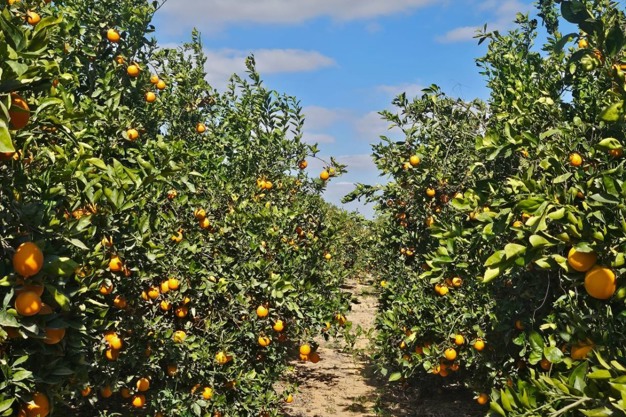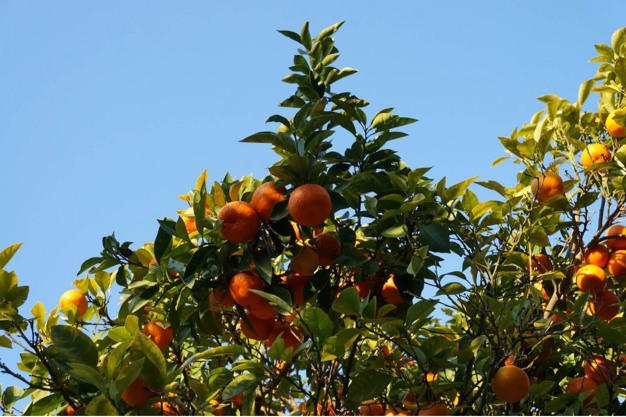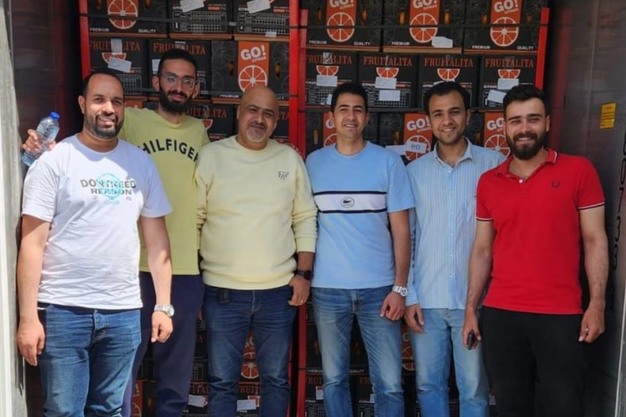Egyptian citrus growers and exporters are gearing up for the upcoming season against uncertainty and after a memorably difficult previous season. According to Ammar Mohammed, CEO of Fruitalita, "The Red Sea crisis will persist, but the citrus industry will be able to demonstrate its resilience and adaptation in the coming season."

Ammar recalls the stormy 2023-2024 campaign: "The Red Sea crisis has significantly disrupted global logistics, particularly affecting Egyptian citrus exports to Asia, which account for approximately 30% of the country's citrus production. Increased transportation costs and delays have put immense pressure on exporters. Transportation costs have increased by an average of 25%, and delivery times to Asian ports have been delayed, affecting the quality of the fruit."
The immediate consequence was an oversupply in Europe, which is a plausible scenario for next season too, according to Ammar. He adds: "The crisis could once again have a ripple effect on European supply. As a major source of citrus for European markets, Egypt's reduced exports to Asia may lead to oversupply in Europe like the previous season, potentially lowering prices. Conversely, persistent transportation issues could disrupt container availability, causing delays and higher costs, which could result in reduced availability of fresh citrus in Europe and increased prices for consumers."
According to the exporter, market diversification and volume control remain the keys to success in the coming season. He adds: "We are proactively diversifying our export markets and exploring alternative shipping routes to mitigate these disruptions. While the long-term impact of the crisis remains uncertain, our focus on quality and reliability will help us maintain a competitive position in the global market. Amidst uncertainty, we believe that the solution to either scenario lies in both importers and exporters. We should carefully monitor the situation abroad by active communication with our customers, as well as being more conservative with volumes at the beginning of the season in case of a market crash like the previous year."
"Overall, the ongoing Red Sea crisis is significantly impacting pricing and supply chains worldwide. However, the future of the Egyptian citrus export industry hinges on our ability to adapt to these challenges and develop sustainable solutions," Ammar says.

Controlling volumes, especially at the start of the season, to avoid oversupply, does not necessarily mean reducing acreage, according to Ammar. "We have not reduced our citrus acreage for the coming season. Instead, we are giving priority to selecting quality fruits, optimizing our logistics, and maintaining strong relationships with our partners to minimize the impact of any transport disruptions. Egyptian citrus continues to benefit from strong global demand, and the positive results of our market diversification efforts last season reinforce our confidence in strong demand for the current season. This optimism is further reinforced by current market prices, as early contracts for Egyptian citrus are comparable to price levels prior to the Red Sea crisis. This indicates a favorable market outlook for the coming season".
Another major difficulty encountered last season, exporters faced an acute increase in packaging costs, resulting from a monetary reform implemented by the government this year. Ammar states: "Packaging costs have reached their record last season due to global material shortages, exacerbated by exchange rate fluctuations and the narrowing of import channels. Despite these increases, we are striving to manage them without passing them on to our clients or compromising our packaging standards."
On the production front, conditions are rather favorable, Ammar reports: "Weather conditions have been relatively favorable, contributing to a particularly high quality of citrus this year. This will likely increase demand. Phytosanitary standards remain a top priority; we have consistently maintained a high level of compliance this season. We continue to monitor and address any issues promptly."

"At Fruitalita, our preparations for the next season are progressing well. We're adapting our production processes to meet the latest market standards and increasing focus on sustainability. We're also strengthening our traceability systems, ensuring that all products meet export regulations and maintaining smooth operations despite external challenges. We are actively engaging with our target export markets, conducting meetings with both existing and prospective clients, and finalizing preliminary contracts to enhance our readiness for the upcoming season's demands."
"Fruitalita Farms, established in 1997, is a family-owned agricultural enterprise dedicated to sustainable practices. We have cultivated a reputation for excellence and environmental stewardship. Our commitment to quality, innovation, and corporate social responsibility has enabled us to thrive in the global market," Ammar concludes.
For more information:
Ammar Mohamed
Fruitalita
Tel: +20-155-797-5300
Email: info@fruitalita.com
www.fruitalita.com
